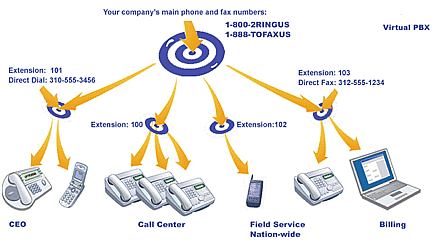It is unthinkable these days for a customer-oriented business not to have one sort of a modern interactive voice response system or another to help fill gaps in communication between itself and its clients, both new and the old ones. In simple terms, modern businesses have made the big switch from live operators to interactive voice response (IVR) systems these days.
What really is an IVR system?
To start with, an IVR system is a perfect example of advanced telephone and computer interaction technology. These sorts of a system allow the users to effectively interact with a company of interest through his or her touch tone telephone system. They enable the user to speak direct commands to a database for whichever his or her immediate purpose, purchase goods or services, check the status of his or her orders and so forth.
The greatest benefit for using these sorts of modern communication technologies is that they do not have a need of human intervention apart from the voice. By wholly controlling and then pre-determining the caller’s immediate needs, an interactive voice response system helps the user to freely manipulate and interact with the data within the system.
The inner working of a fully functioning IVR system
IVR systems work in quite a simple manner. Each phrase or word spoken into the system initiates a wide scale search, making it possible for the keywords or the spoken words or phrases to be easily interpreted by the PSTN (Public Switched Telephone Networks). On the other hand, a computer through the help of an updated software application interprets the phrases, resulting into the right action being taken. IVR systems work through a computer system hooked to the internet through a software application or a telephony card. This IVR software application also helps store all the necessary maintenance tasks for the system.
Simple IVR systems
There are myriad of simple IVR system types in the market today, with all coming with voice recognition capabilities. These come with a security feature that gives the user access to a computer system that recognizes his or her voice.
Advanced IVR systems
Advanced IVR systems have text to speech capabilities, meaning that there is actually no need to prerecord answers for the prospective customer queries with them. These sorts of advanced communication systems automatically respond to customer queries either via automated voice messages or text messages. The said systems are quite advanced and can perform an array of different activities as is required by their users. Their functionality is based on what is referred to as Voice Extensible Markup Language (VXML).
All in all, the main components for all types of IVR systems are web server, VoIP or PSTN network, VXML telephony server, TCI/IP network and updated databases.
Applications of IVR systems
Interactive voice response systems are popularly used to cater for a vast range of customer communication needs in sectors such as banking, transportation, education, communication, health, retail business and so forth. It is basically impossible to offer all the needed services to the customers on a one- to-one basis in these sectors. Fortunately, properly functioning IVR systems are able to provide an efficient mechanism in provision of difficult to give services to private individuals, government agencies, businesses and the likes in dire communication needs.
